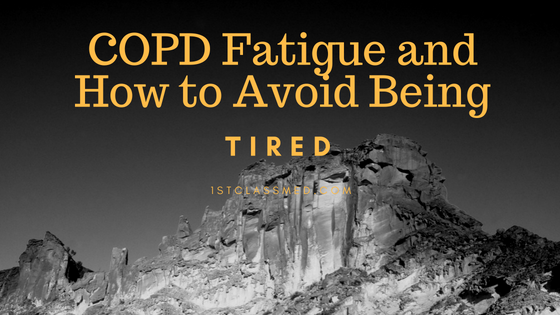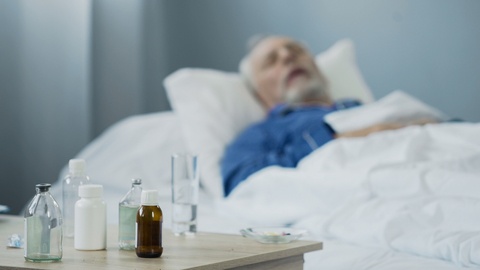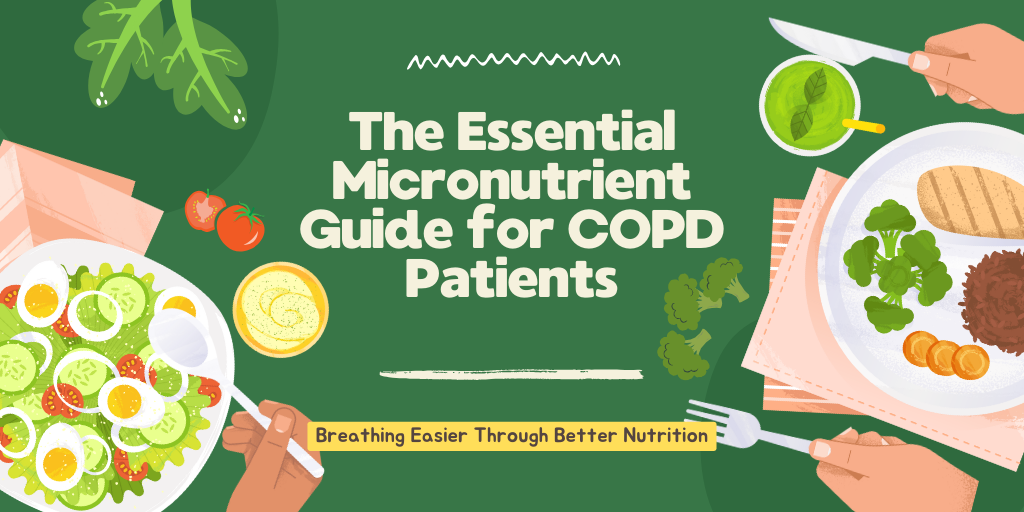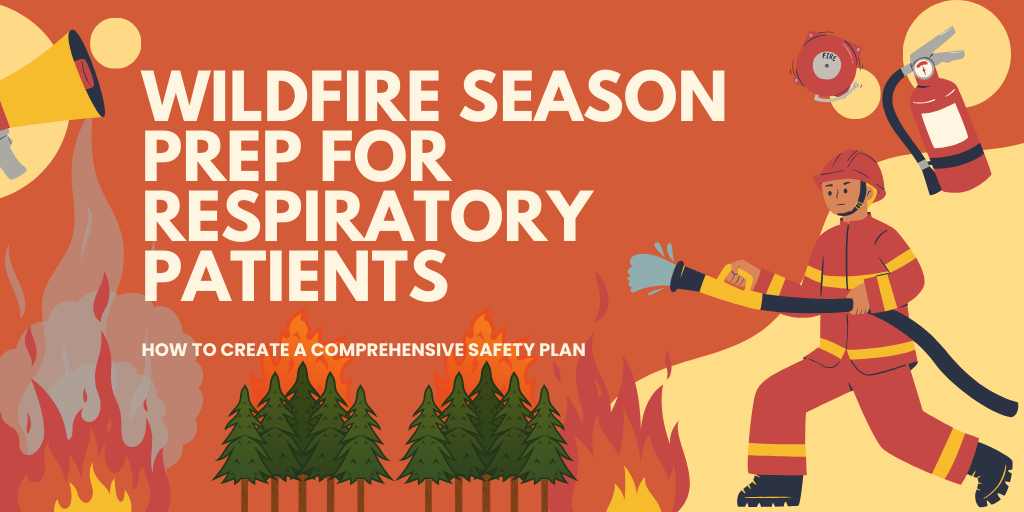
For those with chronic obstructive pulmonary disease (COPD), it can be difficult to get oxygen in your lungs to breathe.
They can become easily fatigued when the body is having to work hard just to get enough oxygen to help organs function.
COPD causes a reduction of airflow into your lungs, this can make it hard to breathe and reduce the amount of oxygen each breathe can take in.
As a progressive disease, COPD can cause symptoms to worsen over time, which can cause more work to get the same amount of oxygen into the body.
The constant effort of trying to get oxygen into the body can tire you from living your life.
Your lifestyle, health and body can all take a toll with COPD, as it exhausts you, making it harder for you to go about your everyday life.
It is important to stay active with COPD, but it can be hard when you are dealing with fatigue.
We found a few ways to help battle your fatigue and keep you awake and active during the day.
Symptoms of COPD:
In order to fight the feeling of fatigue, you need to better understand the symptoms of COPD.
Many symptoms of COPD are common among many diseases and illnesses, so it can be hard to attribute them to COPD.
Common symptoms include a chronic cough, excess mucus buildup in the lungs and throat, fatigue, shortness of breath, tightness in the chest, wheezing and possible weight loss.
Chronic cough and excess mucus can be believed to come from a cold or flu, not necessarily COPD.
Fatigue, shortness of breath, tightness in the chest and wheezing can be blamed on possible asthma or another respiratory condition.
Weight loss can be blamed on diet, versus a respiratory condition making it hard to eat.
Fatigue:
The fancy word for tired, fatigue is the feeling of drowsiness, lack of energy or no energy, physical or mental exhaustion or lack of motivation.
Fatigue is a common feeling for many people, it is common to feel tired at one point or another in your life.
It can be caused from physical activity, stress, lack of sleep, eating unhealthy or consuming too much alcohol.
Though fatigue is not normally linked to a disease, there are a handful of medical causes of fatigue as well, such as COPD.
For many who have fatigue from COPD, there may seem like there is no good way to stop the feeling.
You don’t sleep through the night successfully, you feel lazy, but you are struggling to breathe so you can’t exercise, there is a feeling of not being able to do anything.

COPD & Fatigue:
Fatigue occurs in COPD patients a bit differently than others who may experience fatigue.
With the struggle to take in oxygen to the lungs, your body does not always get the amount of oxygen it needs to function.
After a time of having low oxygen in your blood, which brings O2 to your organs, you can become diagnosed with hypoxemia.
Hypoxemia is a condition where you have low blood oxygen levels, which is common in COPD patients.
This lack of oxygen in the blood and organs can cause the feeling of fatigue, which can be worsened when your lungs cannot properly breathe in and out the oxygen and CO2.
The lack of O2 causes a feeling of fatigue, which it turn makes you not want to go be active, which comes back around and can make you more tired.
This lack of energy will prevent you from going outside to be active, even though it can help you from feeling tired easily.
A cycle of being tired of feeling like you don’t have enough oxygen can make it impossible to go about daily tasks.
Eventually, it is possible to become so tired and exhausted all the time, tasks won’t get done easily, as so much effort will need to be exerted.
Ways to Stop Fatigue:

Sometimes fatigue is inevitable, as people get tired from lack of sleep or too much work, but there are ways to help COPD-related fatigue.
There is no cure for COPD, or the fatigue related to it, but it is possible to help manage the symptoms you are feeling.
Most importantly, speak with your doctor about severe fatigue and see if you can be evaluated, as there is a possibility that there is an underlying condition and there may be medication to help.
If there were another condition that was not discovered, as the focus was most likely on COPD, such as depression, heart disease, or a thyroid issue, there may be medication to help you feel less exhausted all the time.
If your doctor does not find an issue medically, there are still ways to deal with and prevent fatigue on your own.
Though it may seem like a daunting or impossible task, going outside and going for a walk can actually give you energy and make it easier to breathe.
Exercise can also help your lungs by strengthening the muscles surrounding them.
Staying hydrated can also help you feel less tired, as it is H2O.
H2O is broken down into two hydrogen molecules and one oxygen molecule, providing the body with extra oxygen that it would not have gotten otherwise.
Eating healthy can also make it easier to prevent fatigue, as healthy food can give you more energy that candy and sugar can.
Though sugar can give a temporary feeling of energy, it will fade quickly and make you feel more tired than before.
Practicing breathing exercises can also make it easier to prevent fatigue, as strong muscles surrounding the lungs can make it easier to get oxygen into the body.
As sleeping can be difficult with COPD, it is very important to get good sleep when you get sleep.
Making sure you feel comfortable in your bed, with a good number of pillows and the feeling of being tired, it can make it easier to fall asleep.
Sleeping only when you feel tired is important, lying in bed and watching tv will trigger your brain to stay awake, so the bedroom needs to be for sleeping only.
That way, your body will know it is time to sleep when you are in the bedroom.
Another big factor in fighting fatigue is to quit smoking.
Smoking, though many users will say it gives them energy, can drain you of all energy.
When smoking, you are breathing in a bit of oxygen and the smoke, preventing full lungs

to get all the oxygen the body needs.
As this continues, your body is deprived of oxygen and your body begins to feel sluggish and tired.
Lack of oxygen will provide less oxygen to the brain, muscles and organs, which can make your body work overtime to get enough oxygen to function.
Another factor of smoking is it can disrupt your natural sleep cycle.
A study done by the University of Rochester Medical Center found that tobacco smoke can change the expression of the clock genes in your lungs and your brain, which can disrupt your sleep cycle and make it harder to sleep when you are supposed to be sleeping.
Conclusion:
Even though it can be hard to quit smoking, and make a lot of other life adjustments, it can help you from feeling fatigued all the time.
Listening to doctor recommendations and making sure the bedroom is for sleep only can help you get well rested, as well as feel more energized.
It is also important to get outside and exercise, even though it is not always fun.
Exercise is important to help keep your lungs strong and yourself feeling healthy and fit.









